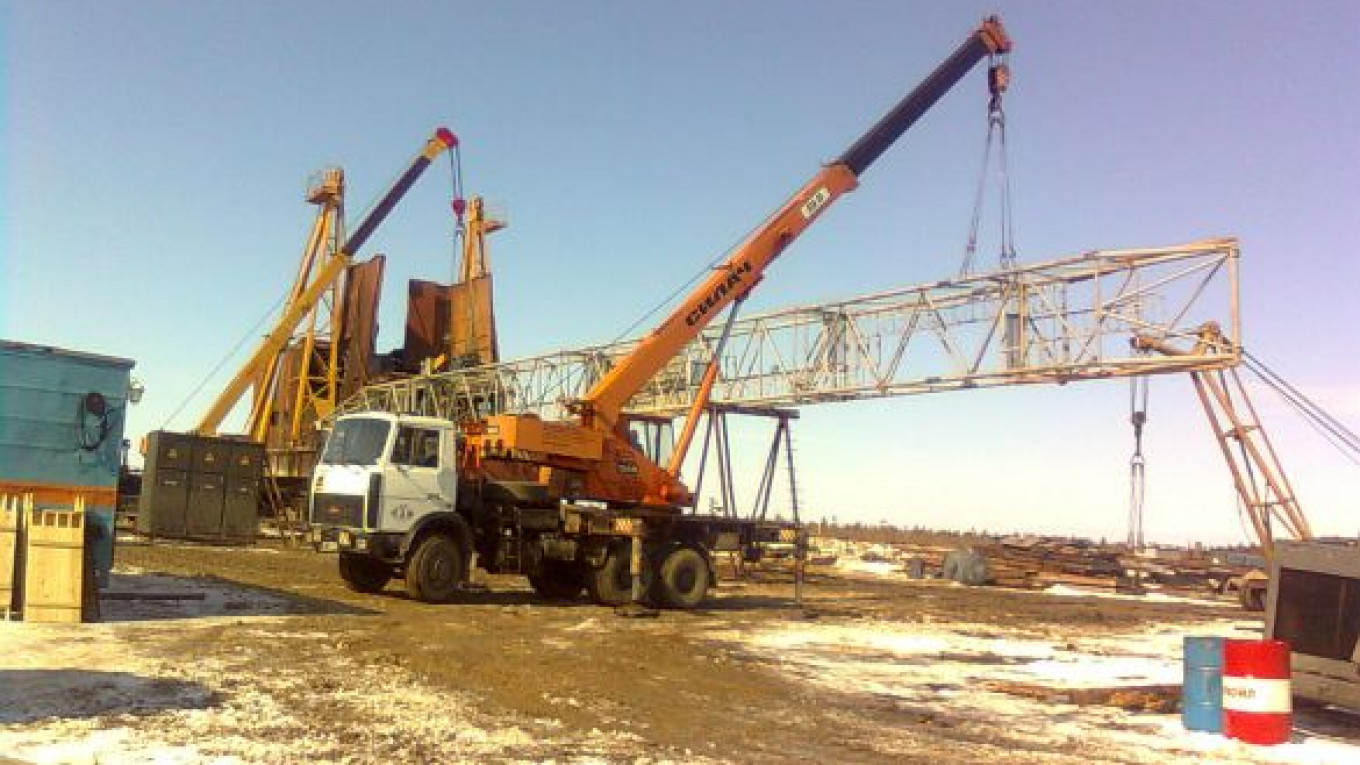The use of horizontal drilling will grow faster in Russia than in the United States, where it is helping to drive a boom in shale oil and gas, the chief executive of Eurasia Drilling said.
“Growth in the U.S. will not be so huge as the growth of horizontal drilling in Russia,” Alexander Djaparidze, who helped found the company in a buyout of LUKoil’s drilling assets, said in an interview.
In the space of last year, Eurasia Drilling, which acquired Schlumberger’s Russian drilling assets in April 2011, reported that horizontal drilling doubled from 2010 to nearly 900,000 meters.
This year, it has told investors it will increase, in line with overall drilling volumes, at about a rate of 15 percent.
Horizontal drilling is technically more challenging and more expensive than conventional vertical drilling but taps hydrocarbon reservoirs more effectively and yields better flows.
Russian oil companies, faced with annual decline rates of 2 percent in their west Siberian home base, where Soviet-era fields generate 85 percent of the country’s 10.3 million barrel per day output, have stepped up the use of unconventional technologies to secure Russia’s position as the world’s top producer.
Beyond the conventional plays of western Siberia lies the Bazhenov Formation, potentially the world’s richest oil shale, which the government hopes to unlock using tax breaks that it announced earlier this year to coax companies to invest in cutting edge drilling technologies.
The Bazhenov was touted as “80 times bigger than the Bakken” and could yield 1 million barrels per day by 2020, research firm Bernstein has said, referring to the prolific Bakken shale deposit in the northern United States.
Farther out are the Arctic seas, where Rosneft will start exploring in 2015 under a partnership deal with ExxonMobil. It has similar deals with Norway’s Statoil and Italy’s Eni. New awareness of the potential to boost production on the part of the government, concerned to sustain hydrocarbon output that yields more than 50 percent of budget revenues, has made analysts bullish on drillers operating in Russia.
“We see the oil service companies as the major beneficiaries of the upcoming exploration drive into offshore and hard-to-access deposits,” Merrill Lynch said in a report.
“Meanwhile, Russia’s conventional drilling should become deeper and heavier, supporting current domestic providers. We see Eurasia Drilling and [competitor] CAT Oil as the main long-term beneficiaries of the upcoming drilling spree.”
Enthusiasm for shale is controversial in oil circles, where some argue that the country has a long way to go to before it exhausts conventional resources, both in western Siberia and at greenfields in the east. These can be unlocked with increased horizontal drilling and by the hydraulic fracturing techniques that have come to be associated with the shale boom.
“Right now, we have the feeling that conventional sources are enough to keep us going for the next five years. We will be happy if there is room for tight oil and gas,” Djaparidze said.
“Well flows achieved at new fields can be several times higher with the implementation of horizontal drilling, which is booming right now.”
Eurasia positions itself as Russia’s only domestic driller with offshore experience, with two jack-up rigs — essentially mobile drilling platforms — operating in the Caspian Sea and a third under construction, as well as a contract for platform services at LUKoil’s Korchagin field.
It intends to compete for Arctic drilling contracts, but Djaparidze said it might need to seek partnerships.
“We will try that, but there will be a lot of big players with a lot of economic and political interests. I think having participation with other companies is the likely route to the Arctic for [Eurasia Drilling],” Djaparidze said.
Related articles:
A Message from The Moscow Times:
Dear readers,
We are facing unprecedented challenges. Russia's Prosecutor General's Office has designated The Moscow Times as an "undesirable" organization, criminalizing our work and putting our staff at risk of prosecution. This follows our earlier unjust labeling as a "foreign agent."
These actions are direct attempts to silence independent journalism in Russia. The authorities claim our work "discredits the decisions of the Russian leadership." We see things differently: we strive to provide accurate, unbiased reporting on Russia.
We, the journalists of The Moscow Times, refuse to be silenced. But to continue our work, we need your help.
Your support, no matter how small, makes a world of difference. If you can, please support us monthly starting from just $2. It's quick to set up, and every contribution makes a significant impact.
By supporting The Moscow Times, you're defending open, independent journalism in the face of repression. Thank you for standing with us.
Remind me later.


